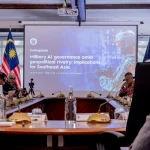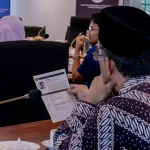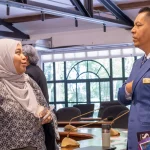Militaries globally are racing to adopt and deploy AI in search of a strategic advantage. Geopolitical rivalry has also raised the stakes for the adoption of AI by militaries and complicated the possibility of reaching consensus on governance and arms control. Southeast Asia has thus far been underrepresented in global discussions on AI governance in the military domain. In a region with other pressing security and economic risks, concerns over AI applications in the military domain appear overlooked. Although ASEAN launched guidelines on AI governance and ethics for civilian applications in 2024, it has yet to initiate a similar effort on AI in the military domain.
- In an environment of strategic contest, what are the various multilateral platforms which could introduce a long-term legally binding instrument to limit harmful and unethical military uses of AI?
- What does future force structures look like with AI and how should they fit seamlessly within national strategies and policy positions, or even other technologies, such as quantum??
- How could the military strengthen cybersecurity and testing, evaluation, validation and verification practices? And what are the gaps to achieve this outcome?
Datuk Prof Dr Mohd Faiz Abdullah
Chairman
Institute of Strategic & International Studies (ISIS)
Malaysia
Manoj Harjani
Research Fellow and Coordinator
Military Transformations Programme
S Rajaratnam School of International Studies (RSIS)




























